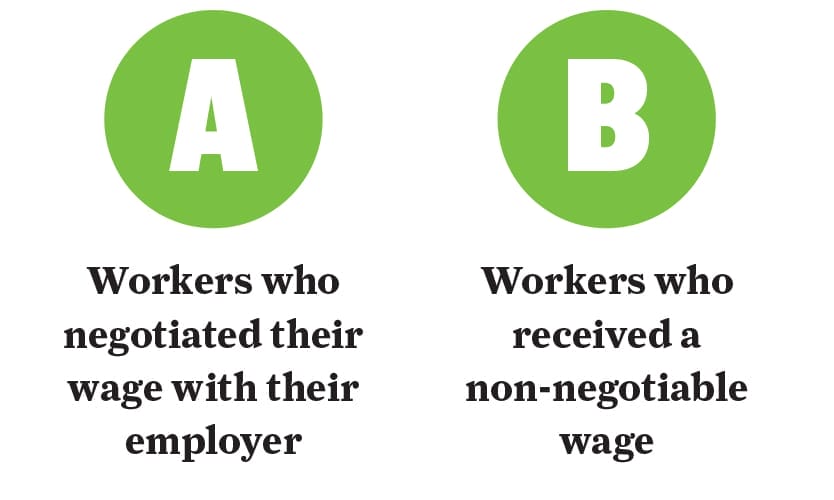Most business books push a singular narrative on negotiations: Go hard or go home. But research conducted by Maurice Schweitzer, Wharton professor of operations, information, and decisions, and Einav Hart, assistant professor of management at George Mason University and a former Wharton visiting scholar, could flip that notion on its head. In their paper “Getting to Less: When Negotiating Harms Post-Agreement Performance,” the researchers find that more harmonious bargaining — and sometimes not negotiating at all — can yield better long-term results, especially when it comes to reaching agreements for services and employment.

Key Context
The service sector accounts for roughly 80% of GDP in developed nations.
The Question
How do negotiations influence post-agreement service?

The Experiments
About 1,200 participants across six experiments were assigned to be workers and matched with employers. Workers were divided into two groups:

Workers then did tasks for their employers. The researchers kept workers’ wages consistent for negotiators and non-negotiators so they could look at how the negotiation process itself — rather than agreement terms — affected performance.
The Results
Workers who negotiated wages did roughly
 than those who didn’t engage in the negotiation process.
than those who didn’t engage in the negotiation process.
The Takeaways
“We can’t assume that when we negotiate, our relationship with our negotiation partner ends when we reach an agreement,” says Schweitzer. “Rather, the negotiation process is part of a broader relationship that may impact what happens later. In some cases, we should think carefully about whether to enter a negotiation.” Negotiators should be mindful that highlighting points of conflict during bargaining could leave their counterparts feeling that they have fundamentally different interests and, in the long term, lead to worse service and economic outcomes.
Published as “Hard Negotiations: Why a Softer Approach Yields Better Outcomes” in the Fall/Winter 2020 issue of Wharton Magazine.


























